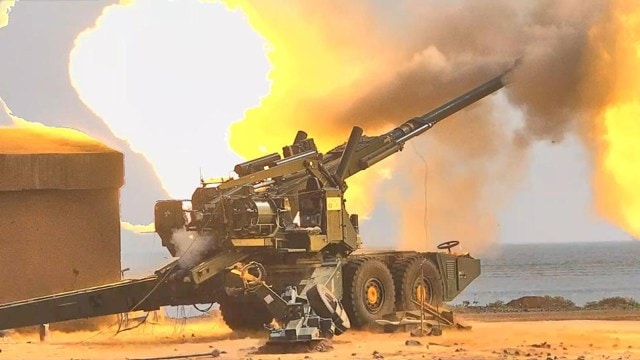Defence procurements via the emergency route will have to be compulsorily delivered within a year of signing the contract, failing which the contract would be cancelled.
This is among the policy changes being made by the Ministry of Defence to expedite and streamline critical military acquisition for the Indian Armed Forces to boost their operational readiness for future conflicts, The Indian Express has learnt.

The decision has been taken following concerns that many of the procurements made through the emergency route earlier, particularly during the months of the military standoff along the Line of Actual Control in eastern Ladakh, were not delivered on time, defeating the very purpose of emergency procurement.
Officials privy to the latest discussions said that only readily available weapons and ammunition in the market will be purchased through the emergency route.
“All of them will have to be delivered within a year of signing the contract, and failing to do so will lead to the cancellation of the contract,” an official said.
Weeks after Operation Sindoor, the government had granted emergency powers to the three services, allowing them to use up to 15 per cent of their capital budgets to urgently purchase ammunition and equipment for replenishment of operational stocks.
On June 24, the Ministry of Defence signed 13 contracts worth Rs 1,981.90 crore under the fifth phase of emergency procurement, which included remotely piloted aerial vehicles, loitering munitions, drones and counter-drone systems to very short range air defence systems and radars.
Story continues below this ad
The emergency procurement route is used to bridge urgent capability gaps within a shorter timeframe as against the usual longer procurement cycle involving multiple steps and clearances.
Before Operation Sindoor in May this year, the Ministry of Defence had granted the Indian military emergency powers for capital procurements of up to Rs 300 crore for the first time soon after the Galwan Valley clash in June 2020.
Emergency powers were also granted for revenue procurements to the three services after the Balakot air strike in February 2019 and the Uri surgical strike in 2016.
Capital procurement powers pertain to the acquisition of capital assets, weapons/weapon systems and other operationally critical equipment, which leads to permanent enhancement of operational capabilities of the defence forces. Revenue procurement powers relate to the procurement of critical spares and ammunition required to sustain or maintain these assets.
Story continues below this ad
Defence Secretary Rajesh Kumar Singh recently said that other steps being taken to complete the usual defence procurement process in two years – from the current five to six years – involve individually compressing timelines of each of the multiple steps involved in the procurement process.
Towards this, it is learnt that the Ministry is looking at ensuring field evaluation trials are completed within a year, as against two to three years taken currently.
It is also exploring if the trials of a platform can be skipped if it is already in service with the military of a friendly foreign country, officials said.
The Ministry is also looking at reducing the standard timeframe of other steps of the procurement cycle, such as issuing a Request for Proposal and cost negotiations, and to ensure that they are completed within three to six months, instead of dragging on for years, the officials said.
Story continues below this ad
At an event in May, the Defence Secretary mentioned that some of the timelines in the procurement cycle have already been slashed, thereby cutting down 69 weeks from the process timeline.
A request for information from vendors, finalising services qualitative requirements (SQRs), acceptance of necessity (AoN) by the Defence Acquisition Council, publishing a Request for Proposal (RFP), technical and field evaluations, and contract negotiations are among the steps before a contract is signed.
The government is also in the process of simplifying the Defence Acquisition Procedure (DAP)-2020 and has formed a panel headed by the Director General (Acquisition) to streamline the acquisition processes, covering categorisation, ease of doing business, conduct of trials, post-contract management, fast-track procedures, and adoption of new technologies such as artificial intelligence.









